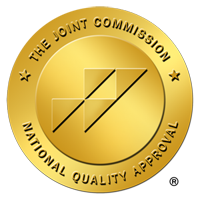Much research has focused on the relationship between substance abuse and mental health disorders, but what about stress and substance abuse? Is stress enough to cause someone to turn to drugs and alcohol or to risk a relapse after treatment?
Stress and Substance Abuse Relationships
Stress is something that occurs in everyday life. At its core, stress is a biological response to potentially dangerous situations, one that is designed to keep you safe and healthy. However, that stress mechanism is more and more frequently triggered by situations that are not potentially dangerous, like sitting at home on the comfort of your couch where you stress about an upcoming work issue or having money to pay for an unexpected car problem.
What does this look like?
The Muscles
When you get stressed, your muscles tense as a way to protect against pain or injury. Under normal circumstances, this tension is supposed to release as soon as the stress does, but chronic stress causes your muscles to remain tense regardless of the situation and that can cause things like tension headaches and back pain.
Respiratory System
Chronic stress and other strong emotions can trigger rapid breathing, clavicular breathing, or shortness of breath. One of the most common things that people experience when struggling with substance abuse is the rise of stress and subsequent anxiety, leading to clavicular breathing, where they take shallow breaths around the clavicle, never quite getting deep into the lungs or the abdomen.
This can exacerbate several problems not just respiratory ones but emotional ones, changing the ratio of oxygen and carbon dioxide in the body as well as oxygenation to the red blood cells.
Hormones
Chronic stress can trigger a cascade in the endocrine system, driving adrenaline rates. Higher levels of cortisol get released, which are designed to give you energy during a challenge, but when there isn’t a life-threatening challenge, it can disrupt your immune system health and cognitive function, among other things.
Chronic Stress and Substance Abuse: The Risks
Research has uncovered that stress is an indicator of substance abuse and relapse for those in recovery. Additional data has found that many people who struggle with stress turn to drugs and alcohol as a way to cope with that emotional distress. In doing so, regular chronic stress leads to changes in the brain’s stress circuits, which can alter things like hormone production. The same hormones that are challenged during stressful events are also altered due to chronic substance abuse, leading to a strong association between stress and addiction.
On the other hand, substance abuse causes negative neuroadaptations in the reward pathways of the brain, and this can increase symptoms of stress during the withdrawal stages.
Together, there is a strong relationship between chronic stress and substance abuse, as stress contributes to a higher risk of substance abuse, and substance abuse contributes to a higher risk of stress.
As the severity of substance abuse increases, so do the neuroadaptations to stress and the increased emotional distress. With the right type of drug rehab, individuals can overcome addiction and learn how to be more mindful of physical and emotional responses to stress.
Stress Reduction with American Detox
When you work with American Detox, our goal is to provide you with the evidence-based therapy you need on a group and individual level during the course of your treatment. Individuals can learn more about what can be done to manage stress through:
- Having a routine
- Creating support networks
- Learning emotional regulation
A substantial part of these measures centers on mechanisms that reduce stress. When you learn to control your response to stress and regulate your emotions, you are less likely to risk a relapse.
Stress Management
At our facility you might be encouraged to adopt relaxation techniques or stress reducing activities like breath work, meditation, or mindfulness. This type of self-reflection particularly stemming from things like cognitive behavioral therapy exercises can give you an opportunity to reflect on what it is that is causing your stress so that you can learn to let it go.
Research shows that these types of stress-reducing activities can improve not just your daily function but your mood.
Breathwork, as part of your program with American Detox, can help you learn to control your physiological responses to stress by focusing on something within your control: your breathing. Our individual and group therapy sessions also encourage the development of support structures that can help you mitigate your stress and reduce your risk of stress-related relapse.
Overall, there is a strong relationship between chronic stress and substance abuse. Both can have detrimental impacts on several areas of your body and brain, leading to an increased risk of the other. With the right level of help, you can learn not just to overcome addiction but to manage subsequent stress.


